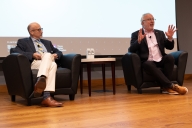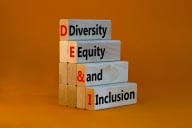You have /5 articles left.
Sign up for a free account or log in.
The articles in Prism, the magazine of the American Society for Engineering Education, focus on new research and teaching ideas. And the magazine periodically writes about efforts to diversify engineering.
Many readers of Prism were shocked this month when they found that the magazine published a letter with what would typically be considered anti-gay rhetoric. The letter questioned whether diversity "is good" if it includes same-sex orientations, which the author said are associated with people dying younger, being "addictive and abusive," and promoting "a sexually promiscuous lifestyle."
"We would do well to teach the truth about the homosexual /lesbian/ bisexual/ transgender lifestyle. These dear people caught up in this destructive way of life need true help and true hope and not encouragement or approval of a detrimental, negative lifestyle. They deserve better than that. This is not God’s plan for their lives," says the letter, from Wayne A. Helmer, professor of mechanical engineering at Arkansas Tech University. He continued: "Beyond the physical, their emotional and spiritual needs are just like ours: Their need for abundant life (emotional) and forgiveness of sins (spiritual) is only what Jesus Christ can give them [John 10:10, 13:16]. Only he can truly change lives and give people the healing and forgiveness and self-worth and significance that they [and we] all desire and need."
The letter prompted the association's president (Kenneth F. Galloway of Vanderbilt University), president-elect (Nicholas J. Altiero of Tulane University) and immediate past president (Walter J. Buchanan of Texas A&M University) to take the unusual step of issuing a joint letter denouncing their own publication for publishing Helmer's piece. "His specious mischaracterization of homosexuality is unsupported by any reputable literature," the letter said. "Professor Helmer is entitled to his religious beliefs. However, Prism is not an appropriate place for him to air his judgment of others based on those beliefs."
The letter continued, "we find the letter in question to be intolerant and prejudicial and not appropriate for publication in a magazine produced for professionals involved in engineering education. We will ask the editor and the publisher to review with us policies used in deciding the appropriateness of this letter and work to ensure that Prism will not in the future consider such contributions."
Others are also speaking out against Prism for publishing the piece. Amy E. Slaton, a historian of science and technology at Drexel University, wrote on her blog STEM Equity that the Prism letter raised broad issues. "The line between 'freedom of speech' on one hand, and the dissemination of hate speech on the other, vexes everyone who thinks about diversity in a democratic society, or at least it should," she wrote. Normally this concern isn't big in STEM education, she added.
"Then when we do recognize it, our responses to discrimination don’t often rise to the level of audible anger. We’ve developed the habit of seeking 'respectful dialog' as mostly, we try to redirect the thinking of those who traffic in bias and stereotyping; a constructive impulse, perhaps, but not always a way of speaking truth to power. It’s partly a matter of self-preservation, of course: activism, anger, noise? ... not the marks of the mature student, or professional educator or engineer," Slaton wrote. "But a funny thing happened on the way to diversity in engineering this morning ... and I am newly worried about the quietness of our STEM diversity efforts, about the sheer timidity of our discussions around difference and inclusion. And mostly: about our reluctance to censure powerfully those who traffic in hateful rhetoric."
Norman L. Fortenberry, executive director of the American Society for Engineering Education, said via e-mail that he stood behind the decision to publish Helmer's piece.
"While we do not assert the equal validity of all viewpoints, we published the letter because because in our judgment: 1. It represented a sincere response to content published in Prism. 2. The views expressed are probably not unique. 3. While many may find the content objectionable, within its context it was apparently not intended as an ad hominem attack. 4. It offered an opportunity for a discussion among ASEE’s membership about the value of diversity," he wrote.
Fortenberry said that, in hindsight, the letter should have had an editor's note "observing that the views expressed were those of the author's alone, noting that among other things, the ASEE Statement on Diversity calls for equality of opportunity, 'regardless of gender, age, race, ethnic background, disability, sexual orientation or national origin,' and further noting that Professor Helmer’s views would appear to be at variance with this statement."
He said that ASEE readers he has heard from "almost without exception" share the view of association leaders that Helmer's piece never should have been published.
Helmer, in a phone interview, said he was not surprised that his letter has created controversy. He said that it has become difficult to criticize "homosexual behavior," and said that he does not use the "politically correct" term "gay." He denied that he was anti-gay, saying that "I am trying to ask the question of how we can help them.... These poor people have been hurt so bad that there needs to be a spiritual solution."








